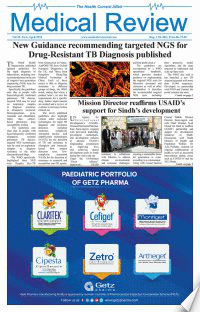Med Rev Report
Members of Vaccine Expert Panel:
Dr. Ejaz A. Khan (General Secretary) – Islamabad, Prof. Iqbal Memon – Karachi, Prof. Ashraf Sultan – Lahore, Prof. Sajid Maqbool – Lahore, Dr. Naseer Uddin Mahmood – Karachi, Prof. Nadeem Khawar – Peshawar, Prof. Haider Sherazi – Islamabad, Prof. Gen. Salman Ali – Islamabad & Dr. Altaf Ahmed – Karachi
VEP Recommendations for the Immunization Schedule of Pakistan:
- 2, 4, 6 months schedule
- 2-dose IPV strategy
- IPV at 2 months
- 2nd dose at 4 months
- Advocacy by VEP for increasing the vaccination coverage
- Hepatitis B to be given at birth. This has been already agreed by EPI Pakistan.
The Vaccine Expert Panel (VEP) arranged its 2nd Meeting at Pearl Continental Hotel, Lahore in the month of September 2015. The Vaccine Expert Panel (VEP) is a group of Key Opinion Leaders in the Pediatric faculty of Pakistan which has been structured to collectively focus on the issues related to vaccination in Pakistan.
The main topic of discussion of this meeting was to discuss the inclusion of one dose of IPV at 14-weeks in the new Immunization schedule of EPI Pakistan. The members of VEP had the following comments:
- Since the SAGE recommendation states that at least one dose of IPV be included in the EPI, it is encouraging that IPV has been included in the 14 week immunization visit as per guidance of the WHO.
- The panel felt that we should move towards more doses of IPV in the future keeping in mind the increased risk of VAPP 3, which is high with first dose of OPV. This shall depend on the feasibility and the programmatical constraints.
- It was also highlighted, that for a country like Pakistan, where polio and its vaccination is already under several question marks and also where convincing parents to vaccinate their children is also very difficult, mention of VAPP will be hazardous as it will have a very negative impact on the whole concept of preventing diseases through vaccines
- The current practice of 6, 10 and 14 weeks may continue, but serious consideration should be given to moving towards the 2, 4 and 6 month schedule for better immunologic response to the vaccines included in the EPI.
The VEP members lamented the decline of vaccination coverage from a high of 80% when the EPI was launched to about 45% currently and emphasized the need of more awareness campaigns to convince not only the public but also the Family Physicians, General Practitioners and the Pediatricians. The importance of convincing religious leaders and the decision makers like the politicians was also emphasized.
The members of the VEP discussed the limitations that EPI maybe facing to initiate a 2-dose IPV schedule in EPI. The major limitation as highlighted by VEP is the financial reasons that EPI maybe facing to support the 2-dose of IPV schedule. Also there can be a lack of political will that is inhibiting the promotion of 2-dose vaccination schedule. There is also an issue of supply of IPV. OPV availability has been ensured to be in line with the birth cohort.
Yet, it was unanimously decided, that VEP being a group of experts would be giving recommendations based on scientific basis rather than basing them on supply issues. It was also emphasized, that WHO has given various options for different vaccines and it is best if each country chooses as per their country environment.
After extensive deliberations and keeping in mind the current evidence, the following recommendations were therefore formulated:
Recommendations:
- Consider switching to the 2, 4, 6 months schedule
- Plan on implementing a 2-dose IPV strategy i.e.,
- IPV at 2 months
- 2nd dose at 4 months
- Strong and persistent advocacy for increasing the vaccination coverage
- Inclusion of the first dose of hepatitis B vaccine to be given at birth. The medical community of the country needs to reinforce this concept
Meningococcal Epidemiology in Pakistan was also discussed during the VEP meeting. Dr. Altaf Ahmed explained the technical reasons behind the lack of the epidemiological data of Meningococcal disease in Pakistan. The expert highlighted that majority of the laboratories of Pakistan lack the sheep blood agar medium which is important for the inoculation of Neisseria Meningitidis.
The panel recommended that the meningococcal vaccine is important for children after the routine vaccines of the EPI are ensured. This organism that can cause serious disease like meningitis and meningococcemia can be prevented by the currently available conjugate vaccine. This becomes important in view of the travel for Umrah and Hajj gatherings where chances of transmission increase.
During the discussion, the nasopharyngeal carrier state for Meningococcal disease was also highlighted. It was unanimously agreed, that the there can be a major risk for meningococcal outbreak in Pakistan especially because of a large population of pilgrims that go to Mecca every year to perform Hajj and Umrah. VEP agreed to the importance of vaccination through the available meningococcal conjugate vaccine to prevent any future epidemics of meningococcal disease. It was reiterated that all those travelling to Saudi Arabia for Hajj and Umrah must get themselves vaccinated against the meningococcus and the practice of obtaining certificates without getting the vaccine should be discouraged.
All the VEP members were committed to take steps to improve the vaccination status of the children of Pakistan and confirmed to take measures that will help in ensuring the recommendations and guidelines related to ALL vaccinations as well as to strive to increase awareness on Immunization amongst the medical faculty of Pakistan.


